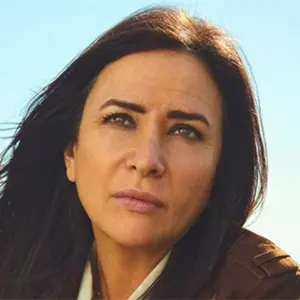Better Things says goodbye: "No show has better embodied the past few years of television"
-

Monday's of Pamela Adlon's FX comedy marks the end of an era -- Better Things showed how anything was possible before the streaming boom succumbed to algorithmic rot, says Phillip Maciak. "Despite happily occupying the margins of various televisual trends, Better Things was also the perfect show of its moment," says Maciak. "Debuting just as anxieties about an increasingly crowded and chaotic TV landscape were reaching a fever pitch in the industry, with streamers proliferating and new original series flooding an already overburdened discourse, Better Things took advantage of the possibility that it might go unnoticed. It reveled, as Adlon recently put it, in its own invisibility. No show has better embodied the past few years of television, its indulgences and its innovations, the doors it opened and closed, its forgetting as well as its unearthly memory. And there may never be another show like it." Maciak adds: "In the years since Better Things’ arrival, the melancholy half-hour comedy series has flourished. Reservation Dogs, I May Destroy You, and Fleabag represent some of the best TV of the past decade, and new series like Somebody, Somewhere, Life & Beth, and Work in Progress show the continuing potential of the form. But Better Things is different: meandering but structurally complex in deceptive ways; deeply tied to the singular point of view of its star and creator; willing to unflinchingly center aging women, invisibilities literal and figurative. Will there ever be another show so unburdened by plot and premise as Better Things?"
ALSO:
- Pamela Adlon wanted to go out with a "beautiful bang": Adlon explains to The New York Times the series finale's final scene and why she decided to end with Season 5. "It was never not going to be the last season," she says. "I never knew that I was going to make a Season 2 or 3 or 4 or 5. But before I started this season, the decision was made. When I was having the conversation about it, with my agent and the network, I had such a stomachache. By the end of the conversation, I was excited. It changed the intention, and it really grounded me. Because I wanted to go out with a beautiful bang." As The Times' Alexis Soloski notes, making the final season took some effort, adding: "Covid-19 delays meant that some crew members weren’t available, and pandemic protocols prevented Imrie from traveling from her London home to Los Angeles. (Celia Imrie doesn’t fly, and boats were not available.) So Phil’s house was rebuilt on a West London soundstage, and the main cast — plus a shipping container of costumes and props — traveled there to shoot all of her scenes."
- Adlon on the challenges of filming the final scene: "The challenges were huge in terms of running out of time and needing to shoot the whole f*cking wedding," she says. "That was like, in and of itself, it was so much because we had to shoot all of it. Then, my editor Annie Eifrig is a genius and she started chopping away at that f*cking thing months and months ago, and seeing the storylines." Adlon adds: "That for me was everything. Everything was a gamble, and I figured, “Oh, I think I might have enough currency with the people who love this show to have them break the fourth wall.”
- Did Adlon learn anything about food staging from Better Things?: "It was all just me being extremely nitpicky, and my aesthetic about things," she says. "If I'm making something or pouring something into a pan, I'd just be waiting for the camera guys to adjust to get the best angle where we could see sunlight coming through the window so that it would bounce off the steam, and we could see the food pour in. Those are all things that I get off on, because it's all an opportunity."
TOPICS: Better Things, FX, Celia Imrie, Pamela Adlon, Series Finales
